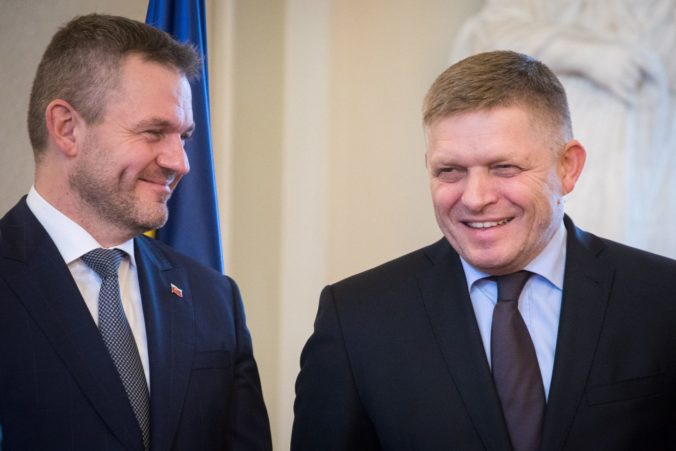In a stunning turn of events that surprised precisely no one who’s been paying attention, Peter Pellegrini snatched the Slovakian presidential crown on April 6th with a cozy 53% of votes, leaving Europhile Ivan Korčok clutching at the remaining 47%. Pellegrini, who shares a sovereigntist-nationalist camaraderie with current Prime Minister Robert Fico, celebrated his victory with more than just a modest toast. Meanwhile, Korčok, the darling of the Western liberal elites and media — seemingly aghast at anyone daring to question the wisdom of arming Ukraine ad infinitum — was left to ponder what might have been.
This election, while ostensibly placing Pellegrini in a largely ceremonial role, subtly shifts the power dynamics. As president, Pellegrini can play the veto card on laws and challenge them at the Constitutional Court, positioning him as a closer ally to Fico’s nationalist government than the outgoing liberal Zuzana Čaputová, who apparently enjoyed disagreeing with the cabinet more than indulging in national pastimes.
Robert Fico has graced the prime ministerial office for the fourth time, brandishing his trademark nationalist fervor like a knight returning with his shield rather than on it. His critiques span the gambit from pro-migration policies to the threats of transgenderism and the woke culture, not to mention his disdain for sanctions against Russia and an eagerness for talks to resolve the Ukraine saga. The EU, in its infinite patience, has responded with the subtlety of a sledgehammer, hinting at a fiscal cold shoulder that could see Slovakia’s EU piggy bank running on fumes. Fico, not one to shy away from a digital soapbox, took to Facebook to prophesy more doom and gloom for Slovakia, should its electorate continue to display such audacious independence of thought.
Meanwhile, Peter Pellegrini, freshly minted as president, vows to navigate Slovakia on the tranquil seas of peace. His commitment to not rock the boat comes alongside a voter turnout that could only be described as enthusiastically robust, with a 61% participation rate that harks back to the heady days of 1999. Pellegrini’s vision of the presidency is one of unwavering support for the government’s life-improving ambitions, decisively distancing himself from any opportunistic opposition leanings that might have characterized his predecessor’s tenure.
Ursula von der Leyen, President of the European Commission, labeled the electoral outcome as “undesired,” delivering a congratulatory message to Peter Pellegrini with all the warmth of a reheated cup of coffee. She then proceeded to nudge him towards promoting “our common EU values,” with the enthusiasm of a parent urging a child to eat their vegetables.
Enter stage right, Viktor Orbán, Hungary’s sovereigntist-conservative Prime Minister and Europe’s favorite enfant terrible, who hailed the election as “a big win for the advocates of peace all around Europe!” His jubilation, perhaps, stems from finding another like-minded soul in the region, much to the chagrin of liberal factions across the continent.
Establishment German politicians wailed hysterically and in their best impression of a Greek chorus, called for Slovakia’s EU funds to be. Some even suggested giving Slovakia the EU equivalent of a timeout by “kicking it out” of the European Union. Meanwhile, Norbert Röttgen of the CDU played the role of the outraged senator, tweeting about Fico and Pellegrini’s alleged sympathies towards Putin and casting Orbán as the Trojan horse in this geopolitical drama.
Echoing Röttgen’s sentiments, Anton Hofreiter of the German Greens suggested that freezing Slovakia’s EU funds might be the “clear warning signal” Bratislava needs, presumably to snap back in line with the EU’s values, as if the country were a misaligned satellite rather than a sovereign state.
Slovakia, under the spotlight for its deviation from the EU Warmongering script since Fico’s latest term, faces threats of rule-of-law procedures and the withholding of EU funds. It appears that in the EU’s narrative, deviation from the prescribed storyline — be it skepticism towards migration policies or sanctions against Russia — warrants a dramatic reevaluation of one’s membership in the bloc.
